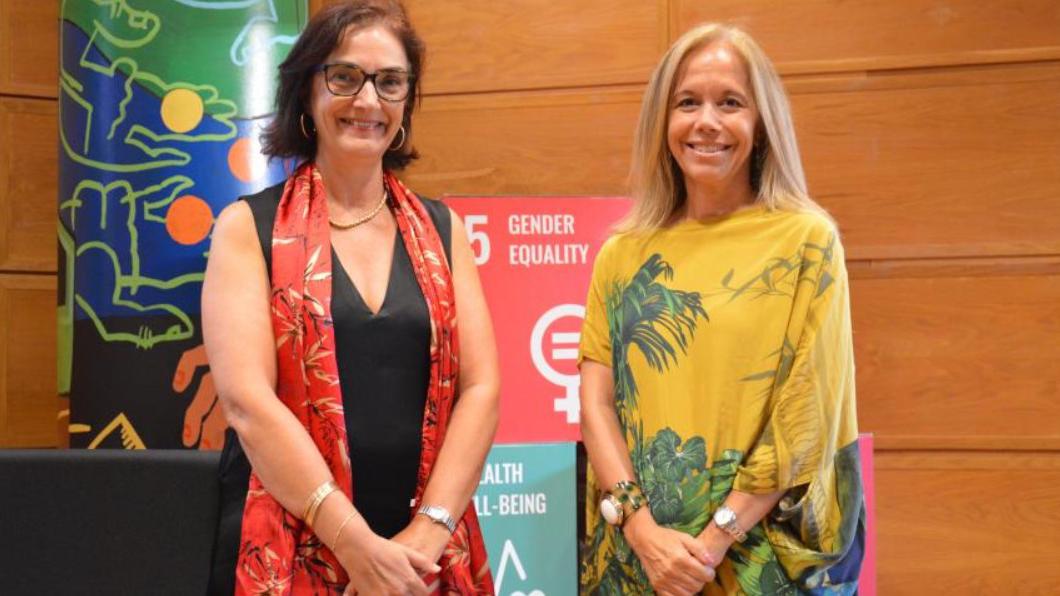
"I am and always will be a scientist." This is how Elvira Fortunato, Minister of Science, Technology and Higher Education, addressed the researchers of Universidade Católica Portuguesa at the IV CARE - Catholic Research Meeting, this Wednesday, September 22, in what was her first visit to the UCP as a government official.
In this occasion of reflection and debate for scientists from various areas, the minister announced first-hand that all researchers who have applied for grants from the European Research Council "who have passed the second stage, reached the interview and who have not had a funded project, will automatically receive financial support from FCT."
A reason for celebration for those present, who gathered at the headquarters of the Catholic University of Portugal in Lisbon to discuss the challenges of inter and transdisciplinarity in research, gender equality in academia, and share experiences with other institutions.
For Peter Hanenberg, Vice-Rector for Research and Innovation at UCP, "science is going beyond, it's finding new paths". Isabel Capeloa Gil, Rector of UCP, highlighted gender equality as "a central theme to our involvement with science". In a scenario where there are "47% of women as researchers and professors", but only "23% as university leaders in Europe", Isabel Capeloa Gil stressed that gender equality "continues to be relevant and very important for science and institutions to be more competitive.
Gülsün Sağlamer, who was the first and only woman Rector of the Technical University of Istanbul (1996-2004), and current President of the European Women Rectors Association, argued that achieving gender equality will only be possible with three types of changes: "cultural, structural and also individual.
"It is our duty as rectors to bring this subject to debate, to raise awareness and open the doors to the younger generations," she clarified, also emphasizing the role that leadership can have in the future of an institution.
For Ana Costa Freitas, President of the Portuguese Association of Women Scientists (AMONET), who was Rector of the University of Évora (2014-2022), "women are underrepresented in positions of responsibility in all areas, from business, to politics, to academia." She explained that "this is not just a problem for women, it is a problem for society, a global problem" and that "we have to work together to achieve this goal".
During this event, the conclusions of several multidisciplinary working groups - clusters - on "CARE for our Common Home" and "Health in the context of digital, environmental and societal transformations" were also presented, in addition to the participation of PhD students and post-doctoral teaching at UCP in a roundtable on interdisciplinarity.
As an example of this sharing between scientific areas, the UCP Rector highlighted the ODS chairs, optional 1st cycle subjects, specifically dedicated to the study and understanding of several Sustainable Development Goals of the United Nations Agenda 2030, which "can inspire students to think differently.
Paulo Dias, the coordinator of the Center for Philosophical and Humanistic Studies, highlighted the new degree in Applied Data Science, which aims to prepare students for data analysis, using computing and mathematics, to solve problems in the social sciences, humanities, and behavior.
In the closing panel, Rui Vieira Castro, Rector of the University of Minho, mentioned the importance of "overcoming the barriers of scientific areas" so that "the different fields work together for the benefit of society". Caren Norden, Deputy Director of the Gulbenkian Science Institute, argued that multidisciplinary opportunities contribute to the creation of "more original science".


